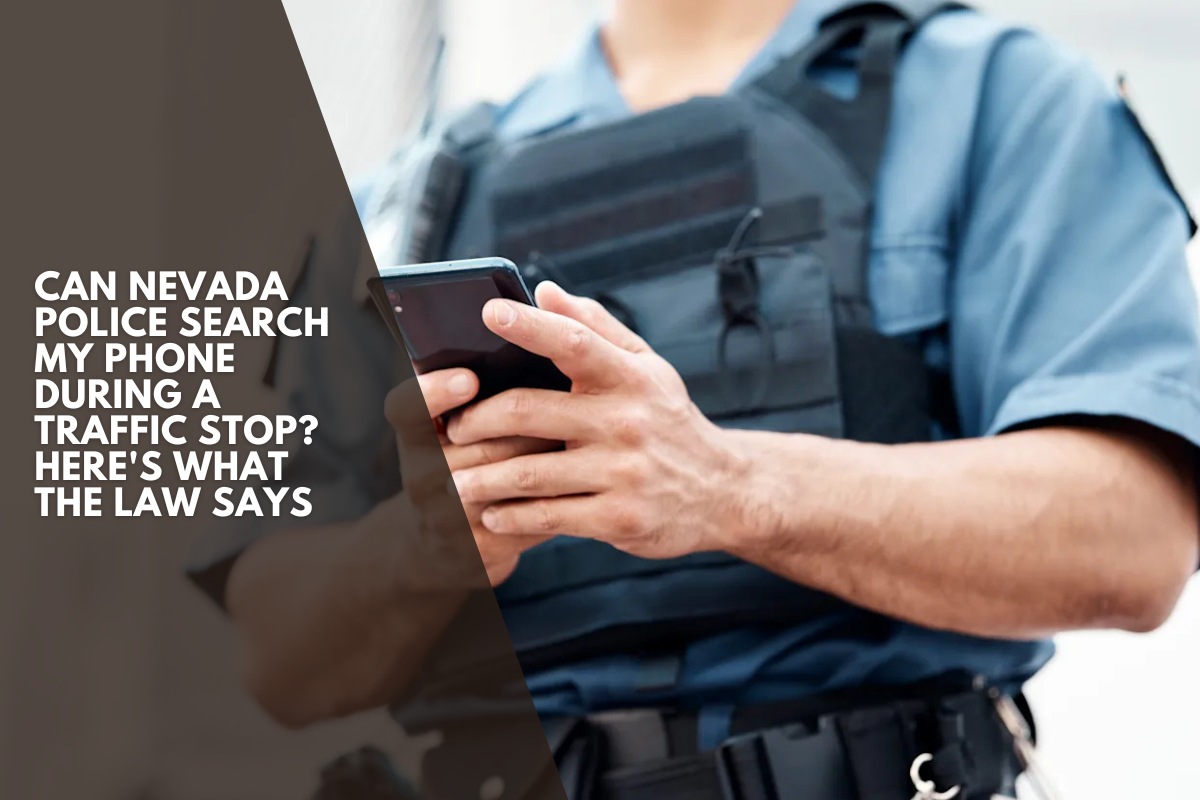In Nevada, the right to privacy under the Fourth Amendment protects individuals from unreasonable searches and seizures, including during traffic stops. Generally, police need a warrant to search your phone, even if they have stopped you in traffic or arrested you. Nevada’s state constitution mirrors this federal protection, requiring probable cause and a valid search warrant for most searches.
Police Authority During Traffic Stops
Police can stop you if they have reasonable suspicion that you violated a traffic law or committed a crime. During the stop, they may request your driver’s license, vehicle registration, and proof of insurance. They can ask questions and order you out of the vehicle if necessary for officer safety. However, searching your phone during a traffic stop is far more restricted than searching your person or vehicle.
When Can Police Search Your Phone Without a Warrant?
There are a few narrow exceptions under which police may seize your phone without a warrant, such as:
The U.S. Supreme Court ruling in Riley v. California (2014) established that the digital contents of a cell phone cannot generally be searched without a warrant, even after arrest. Nevada courts have affirmed this protection, requiring specific warrants to search phones.
What Happens if Police Search Your Phone Without a Warrant?
If police search your phone’s data without a valid warrant or an applicable exception, such a search is usually unconstitutional. Evidence obtained from an illegal phone search can be suppressed (excluded) from court proceedings. A criminal defense attorney can file a motion to suppress evidence if such violations occur.
Best Practices for Drivers
Politely refuse consent if police ask to search your phone during a traffic stop.
Do not physically resist; state clearly that you do not consent to any search.
You must provide your name during a lawful detention but beyond that, you can remain silent.
If your phone is seized, expect it to be stored securely until a warrant is obtained.
Seek legal advice immediately if you believe your rights have been violated.
Summary
Police generally need a search warrant to examine your phone’s contents in Nevada.
Warrantless phone searches during a traffic stop are illegal unless exigent circumstances exist or you give consent.
Under Riley v. California, digital searches require specific warrants, even after arrest.
Refusing consent to a phone search is your right; do not physically resist but clearly state your refusal.
Evidence from illegal phone searches can be suppressed in court.
Nevada law prioritizes your privacy rights by requiring law enforcement to follow strict procedures before searching cell phones during traffic stops or arrests, reflecting modern recognition of the sensitive data contained on mobile devices.
Sources
[1] https://joeygilbertlaw.com/blog/your-rights-during-police-searches-in-nevada/
[2] https://scholars.law.unlv.edu/cgi/viewcontent.cgi?article=2631&context=nvscs
[3] https://www.shouselaw.com/nv/blog/warrant/when-are-nevada-police-allowed-to-search-my-cell-phone-do-i-have-to-give-my-passsword/
[4] https://www.bensonbingham.com/nevada-supreme-court-decides-on-case-regarding-police-search-during-traffic-stops/
[5] https://www.uscourts.gov/sites/default/files/rights-police-stops.pdf












Can I be legally stighted arrested and or car towed if my car is not registered or insured in Nevada or arizona
Thank you for the helpful feedback. Yes, you can face significant legal consequences, including being arrested and having your car towed, for driving an unregistered or uninsured vehicle in both Nevada and Arizona.